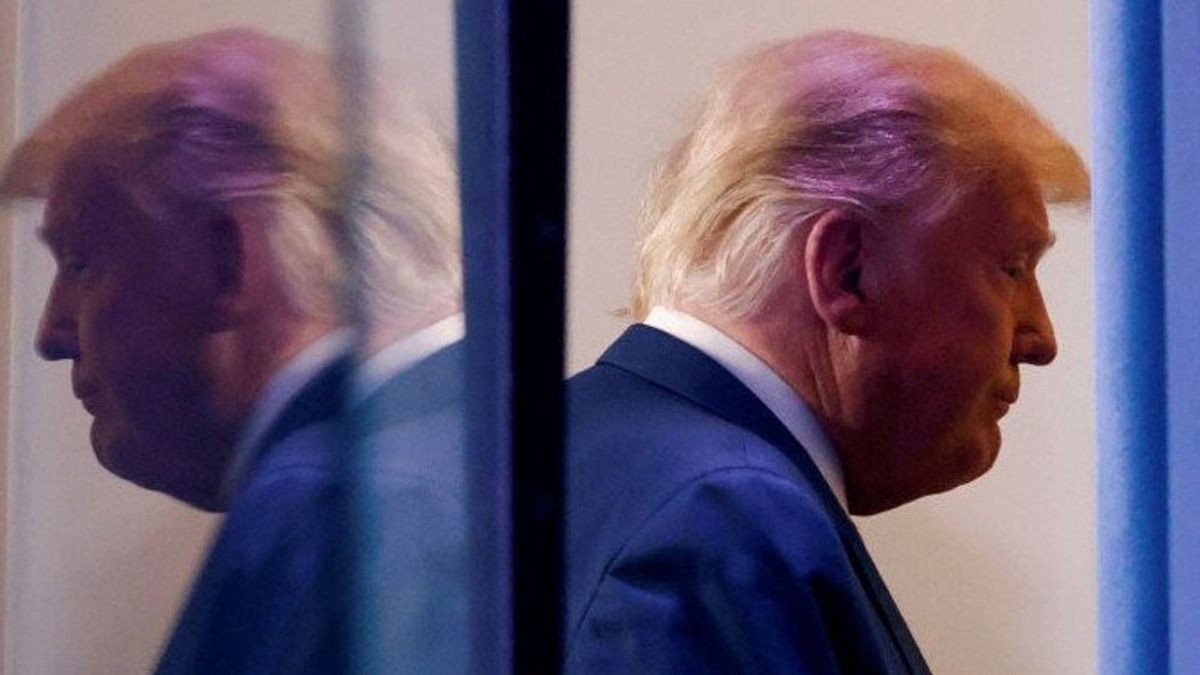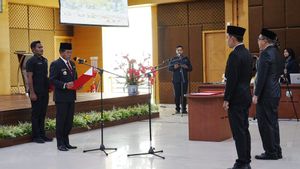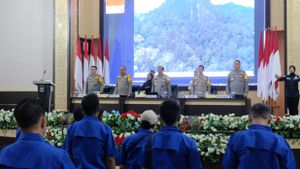JAKARTA - Former President of the United States (US), Donald Trump is involved in alleged espionage. Trump is said to have used the Soviet Union and Russia for 40 years as a spy.
The news was revealed by former member of the Gosudarstvennoy Bezopasnosti (KGB) Committee, Yuri Shvets. According to Shvets, Trump is taking part in anti-Western propaganda.
Launching The Guardian, Sunday, January 31, Shvets described Trump's position as a British spy network known as "The Cambridge Five." The British spy network was the one that provided classified information to the Soviet Union during World War II and the start of the Cold War.
Shvets said he was sent to Washington DC in 1980 by the Soviet Union. At that time Shvets was disguised as a correspondent for the Russian news agency Tass.
Shvets then moved permanently and obtained US citizenship in 1993. Later he worked as a corporate security investigator and partner of a late Russian spy named Alexander Litvinenko.
Interested in TrumpSvets' description of Trump is written in the book American Kompromant by journalist Craig Unger. The journalist in the book also recounts the first time Trump caught Russia's attention in 1977.
At that time Trump was the target of a joint espionage operation between the KGB and the Czech Intelligence Service. After that, Trump built the Grand Hyatt Hotel in New York, near the Grand Centra Station.
Trump also purchased two hundred television sets for the hotel from Semyon Kislin. Semyon is a Soviet immigrant who also owns an electronics store, Joy-Lud on Fifth Avenue.
Shvets suspected that Joy-Lud was controlled by the KGB and Kislin. Then Kislin saw that Trump had the potential to be used as a spy.
"Kislin realized Trump was a young, rising entrepreneur who had the potential to be exploited," said Shvets.
Trump then visited Moscow and St. Petersburgh in 1987. It was then that Shvets influenced Trump to provide the various directions that the KGB formulated.
After his visit to Moscow, Trump began looking for ways to get himself noticed as a presidential candidate. Trump did many things, including placing advertisements in a number of major newspapers, such as the New York Times, Washington Post and the Boston Globe.
The advertisements contain dubious opinions about US participation in the North Atlantic Treaty Organization (NATO). The advert also contains allegations that Japan exploited the US.
Shvets returned to Russia after the advert appeared and faced the KGB leadership. KGB officials said they were happy that their plan to coach Trump to corner the West was successful.
Then the KGB exploited Trump by pretending to be flattered by Trump's attitude. Trump's game was successful and was a major KGB achievement.
Trump also won in the 2016 presidential election. Russia welcomes Trump's victory. Russia is said to have had an initiative project from the Center for American Progress Action Fund and found that the campaign team until Trump's transition had 272 contacts with Russian agents.
The English, Chinese, Japanese, Arabic, and French versions are automatically generated by the AI. So there may still be inaccuracies in translating, please always see Indonesian as our main language. (system supported by DigitalSiber.id)








